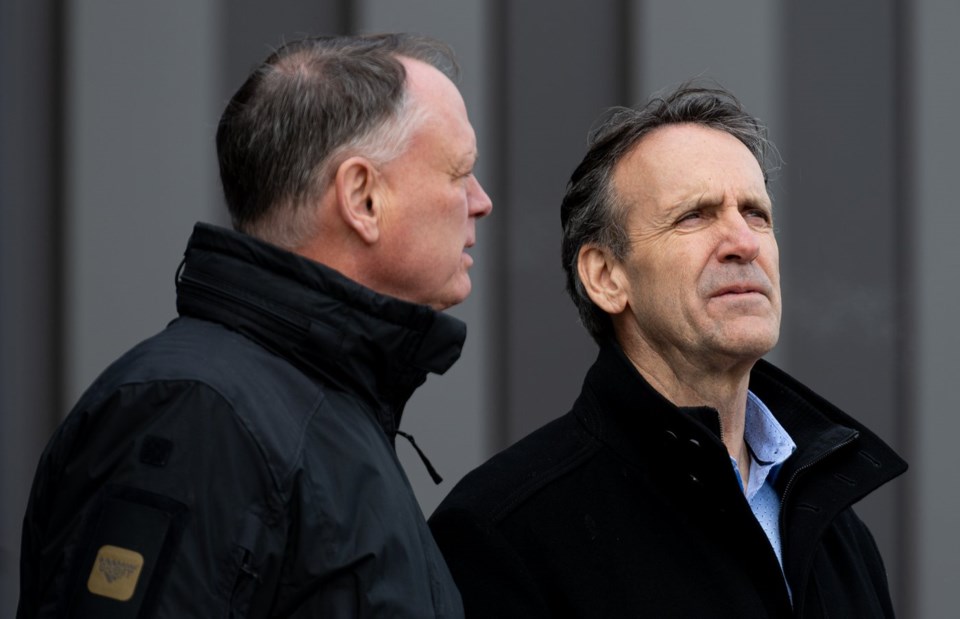LANSDOWNE, ONT. — Canada's new fentanyl czar Kevin Brosseau said Wednesday he will bring an "intensity" to efforts to eliminate the drug's scourge on both sides of the border.
Brosseau, who was named to the role Tuesday afternoon, spent his first full day on the job Wednesday touring a border point east of Kingston, near Lansdowne, Ont., alongside Public Safety Minister David McGuinty.
Brosseau, a former senior Mountie, said his mandate is to ensure that officials on both sides of the border, and in communities across Canada, are communicating effectively on their efforts to fight the fentanyl crisis.
"I'm hoping to be able to bring an intensity to the work being carried out by the thousands of men and women in this country and the United States trying to deal with a real public safety and national security crisis," he said.
Brosseau spent more than 20 years with the RCMP, including as deputy commissioner and as the commanding officer in Manitoba. More recently he was the deputy national security and intelligence adviser to the prime minister.
His new position was created by Ottawa in response to U.S. President Donald Trump's threat earlier this month to impose broad-based 25 per cent tariffs on Canada and Mexico, tied to what he claimed was a lack of effort by the two countries on fighting the fentanyl trade. He delayed those levies until at least March 4 in response to border security commitments from both countries.
The U.S. Customs and Border Protection reports that it intercepted 19 kilograms of fentanyl near the northern border between October 2023 and September 2024, less than one per cent of fentanyl seized by U.S. border guards in that period.
Just 0.2 grams of fentanyl can deliver a fatal dose.
Brosseau said he is committed to reducing the amount of fentanyl heading south.
"Getting the number to zero is in fact the goal, and should be our goal," he said.
"This is a national security and a public safety crisis. We should be focused on eliminating the scourge that is fentanyl in this country and in the United States."
He said that if he could send a message to Trump, it would be that his appointment demonstrates how seriously Canada takes the fentanyl crisis.
Brosseau said he spoke with Canada's Ambassador to the U.S. Kirsten Hillman Tuesday night and they discussed setting up meetings in Washington D.C. "very, very soon."
Brosseau spoke alongside Public Safety Minister David McGuinty, who said cool heads and a disciplined approach should prevail as Canada faces the threat of hefty U.S. tariffs on goods exported to the United States.
"Four hundred thousand people a day cross that border, $3.25 billion a day in trade. There's a lot at stake for our peoples in the United States and Canada," McGuinty said. "There is a way to find our way forward."
The minister said a trade war would be a losing proposition for both countries.
While Trump cited fentanyl traffic and border security to justify his initial tariff threat, he also has complained frequently about the U.S. trade deficit with Canada and has said he wants Canada to become a U.S. state.
McGuinty said that Canada will continue to make progress on its border plan, which earmarked $1.5 billion in new spending in December and includes listing drug cartels as terrorist entities.
"We're going to proceed as we always have, with good faith and good will. There's progress to be made," he said.
McGuinty did not say when cartels will be listed as terrorist entities in Canada.
This report by The Canadian Press was first published Feb. 12, 2025.
David Baxter, The Canadian Press
